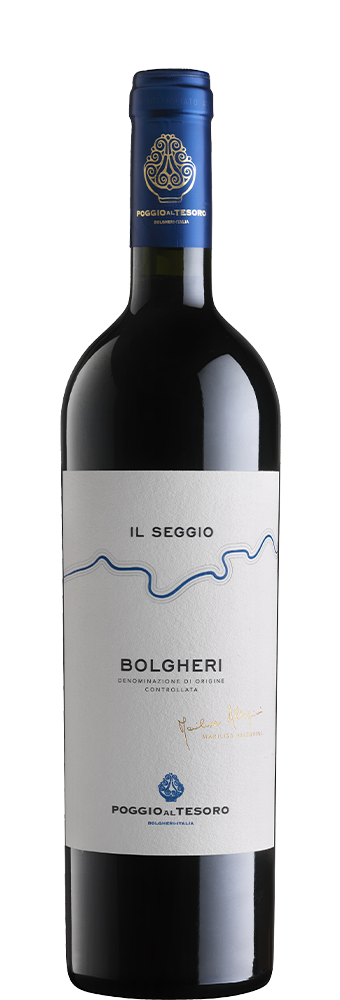Il Seggio

Il Seggio
Bolgheri Rosso D.O.C.
Merlot 50%, Cabernet Sauvignon 20%, Cabernet Franc 20%, Petit Verdot 10%
The Seggio river is the largest watercourse in the municipality of Castagneto Carducci. Its source is up in the metalliferous hills of Sassetta, an area that was already well known in the Etruscan period, which is extremely rich in underground deposits of ferrous minerals. It cuts across the entire area of Bolgheri and its alluvial debris enriches the characteristic clay soils with precious large pebbles, thus ensuring excellent drainage of the soil. This Bolgheri Rosso is produced with typical grape varieties, carefully harvested and vinified to ensure density and concentration but also to create a very fresh and easy-drinking style of wine.
Climate Trend
It was a complex year from an agricultural point of view and required careful management. The constant extreme heat and the extended drought created many headaches for vineyard management. However, we managed to ensure the conditions for stable ripening with attention and determination.
Rainfall at the end of August contributed to the natural realignment of the core characteristics and made it possible to postpone the start of what seemed to be an early harvest; it took more than a month to harvest our grape varietals, honour their respective ripening periods, and bring everything to the cellar.
The grapes were healthy, with a good level of ripeness and excellent flavour. Fermentation of the grape must was within normal parameters. The first aromas in the cellar are fresh and fruity and in tastings, the wines are full and complex… we are very curious and still waiting for the final results, with great expectations!

-
-
grape varieties
Merlot 50%, Cabernet Sauvignon 20%, Cabernet Franc 20%, Petit Verdot 10%
-
-
vineyard location
Via Bolgherese, Cabernet Sauvignon (3.00 ha – 7.40 ac); Le Sondraie, Merlot, Cabernet Franc, Cabernet Sauvignon and Petit Verdot (12,00 ha – 29.65 ac)
-
-
capacities
375 ml • 750 ml • 1,5 L • 3 L
-
-
vinification
Grapes are de-stemmed then soft pressed to partially rupture of the berries
ageing
15 months in 225 litres French oak barriques (30% new, 70% second use)
fermentation
In temperature controlled stainless steel tanks
malolactic fermentation
Carried out naturally in barriques in November